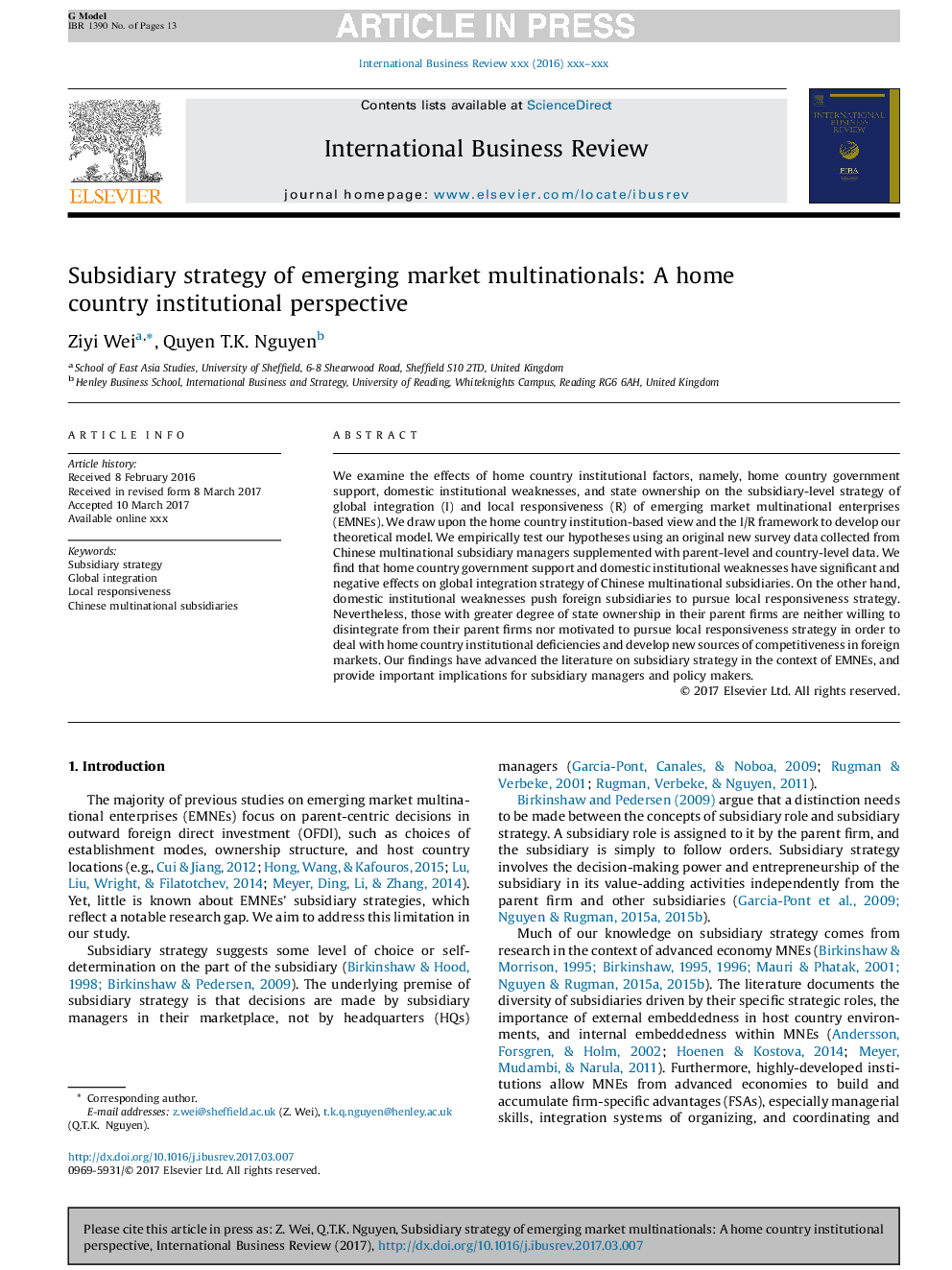ترجمه فارسی عنوان مقاله
استراتژی زیربنایی چند ملیتی در بازارهای در حال ظهور: چشم انداز نهادی سازمانی کشور
عنوان انگلیسی
Subsidiary strategy of emerging market multinationals: A home country institutional perspective
| کد مقاله | سال انتشار | تعداد صفحات مقاله انگلیسی |
|---|---|---|
| 99135 | 2017 | 13 صفحه PDF |
منبع

Publisher : Elsevier - Science Direct (الزویر - ساینس دایرکت)
Journal : International Business Review, Volume 26, Issue 5, October 2017, Pages 1009-1021
ترجمه کلمات کلیدی
استراتژی تکمیلی، یکپارچگی جهانی، پاسخگویی محلی، شرکت های چندملیتی چینی،
کلمات کلیدی انگلیسی
Subsidiary strategy; Global integration; Local responsiveness; Chinese multinational subsidiaries;

